 |
 |
 |
 |
 |
 |
|
*Ca14-18 |
*Ca14-19 |
*Ca14-20 (383) |
*Ca14-21 (6 + 378) |
*Ca14-22 |
*Ca14-23 |
.jpg)
... The
king, wearing now a short, stiff archaic mantle, walks
in a grave and stately manner to the sanctuary of the
wolf-god Upwaut, the 'Opener of the Way', where
he anoints the sacred standard and, preceded by this,
marches to the palace chapel, into which he disappears.
A period of time elapses during which the pharaoh is no
longer manifest.
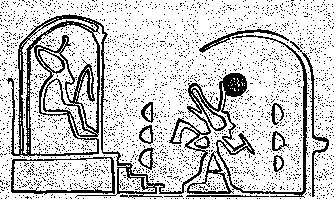
When he
reappears he is clothed as in the Narmer palette,
wearing the kilt with Hathor belt and bull's tail
attatched. In his right hand he holds the flail scepter
and in his left, instead of the usual crook of the Good
Shepherd, an object resembling a small scroll, called
the Will, the House Document, or Secret of the Two
Partners, which he exhibits in triumph, proclaiming to
all in attendance that it was given him by his dead
father Osiris, in the presence of the earth-god
Geb. 'I have run', he cries, 'holding the Secret
of the Two Partners, the Will that my father has given
me before Geb. I have passed through the land and
touched the four sides of it. I traverse it as I
desire' ...
A new king had to make a circuit around
the whole country before he could take command over it:
... Five days of illumination, called the 'Lighting of
the Flame' (which in the earlier reading of this miracle
play would have followed the quenching of the fires on
the dark night of the moon when the king was ritually
slain), preceded the five days of the festival itself;
and then the solemn occasion (ad majorem dei gloriam)
commenced. The opening rites were under the patronage of
Hathor. The king, wearing the belt with her four
faces and the tail of her mighty bull, moved in
numerious processions, preceded by his four standards,
from one temple to the next, presenting favors (not
offerings) to the gods. Whereafter the priesthoods
arrived in homage before his throne, bearing the symbols
of their gods. More processions followed, during which,
the king moved about - as Professor Frankfort states in
his account - 'like the shuttle in a great loom' to
re-create the fabric of his domain, into which the
cosmic powers represented by the gods, no less than the
people of the land, were to be woven ...
In Manuscript
E an echo of this can be read as Makoi was
ordered to stay behind on Easter Island when the rest of the
Explorers went home:
... You are
the one who shall stay here. We, on the other hand, have
to turn around. Makoi replied, All right with me!
Then Ira continued to speak to Makoi:
Tomorrow, when it grows light, set out and name the
places beginning with Apina. Makoi
replied, How shall I give the names? Again Ira
spoke, In Hiva are the names that are to be taken
to name (the places of the new land).
It
grew light and Makoi got up. He set out and came
to Apina. When he arrived there, he gave the name
This is Apina Iti, this is Rapa Kura. He went on
and came to Hanga O Ua. He gave the name This
is Hanga O Ua of the Beautiful Wave (vave renga).
Makoi went on, giving names, until he had made a
(complete) circle around both sides (of the island). In
Apina Nui a stone (maea) was erected,
saying that the naming was done on a (round) trip during
a single day ...
Barthel has
changed the name ko hanga o uo to ko hanga o
ua, an example of such manipulations which threaten
to obliterate original meanings. I guess the intention
of the creators of the Manuscript, when they wrote ou
instead of ua, was to render a special meaning, a
hint in the background so to say.
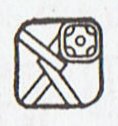 |
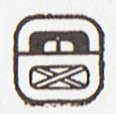 |
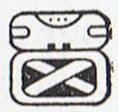 |
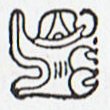 |
|
Pop (20) |
Uo |
Zip |
Zotz (80) |
|
Hua.
1. Testicle. 2. Figuratively:
son, hua tahi, only son; fruits of
the earth; to grow well (of fruits). 3. To
cause a fight, a quarrel. Hua-ai,
generation, as lineage of direct
descendents; contemporaries.
Huahua, coccyx of bird, 'parson's
nose': huahua moa, huahua uha.
Huataru, a creeper (Chenopodium
ambiguum). Vanaga. 1. The same; ki
hua, again, to continue, to strain, to
struggle, to move, to repeat, over and
above. Mq.: hua, the same, to return,
to recommence. 2. To bloom, to sprout;
flower, fruit (huaa); huaa
tae oko, huaa vahio, young fruit; hua
atahi, only son; huahaga, fruit;
mei te huahaga o tokoe kopu, the
fruit of thy body; tikea huahaga,
deceptive appearance. P Pau.: ua, to
be born; huahaga, lineage. Mgv.:
hua, to produce (said of trees, grain,
etc.), blooming time of flowers, abundance
of fruit. Mq.: hua, to produce, to
bear fruit. Ta.: ua, to sprout.
Huahua. 1. Tailless fowl. 2. Vein,
tendon, line. 3. Mgv.: huahua,
pimples covering the face. Ta.: huahua,
id. Mq.: hua, tubercules. Sa.:
fuafua, abscess on hand or feet. Ma.:
huahua, small pimples. Pau.:
Hua-gakau, rupture. Ta.: áau,
entrails. Sa.: ga'au, id. Ma.:
ngakau, id. Churchill. 1. Fruit. 2. Egg.
3. Tā
hua = 'genealogical writing' or 'same
writing'. Fischer.

Cb5-17 (503) |
ki te huaga |
503 = 392 + 111 = 402 + 101 =
355 + 148 = 137 + 366 |
σ Octantis (320.0) |
Febr 4 (400 = 116 + 284) |
|
σ¹ Ursae Majoris (137.0) |
Aug 5 (217 = 400 + 183 - 366) |
... The
four bereaved and searching divinities,
the two mothers and their two sons, were
joined by a fifth, the moon-god Thoth
(who appears sometimes in the form of an
ibis-headed scribe, at other times in
the form of a baboon), and together they
found all of Osiris save his genital
member, which had been swallowed by a
fish. They tightly swathed the broken
body in linen bandages, and when they
performed over it the rites that
thereafter were to be continued in Egypt
in the ceremonial burial of kings, Isis
fanned the corpse with her wings and
Osiris revived, to become the ruler of
the dead. He now sits majestically in
the underworld, in the Hall of the Two
Truths, assisted by forty-two assessors,
one from each of the principal districts
of Egypt; and there he judges the souls
of the dead. These confess before him,
and when their hearts have been weighed
in a balance against a feather, receive,
according to their lives, the reward of
virtue and the punishment of sin.

|
|
Vave.
Water in motion, a
long wave; pokopoko vave, trough of
the sea; tai vave, rough sea; vave
kai kohe, unapproachable. Churchill.
Pau.: A fringing reef. Mgv.: taivave,
a rolling billow. Ta.: vavea, a
towering billow. Churchill. |
|
Rega. Ancient
word, apparently meaning 'pretty,
beautiful'. It seems to have been used
also to mean 'girl' judging from the
nicknames given young women: rega
hopu-hopu. girl fond of bathing;
rega maruaki, hungry girl; rega
úraúra, crimson-faced girl. Vanaga.
Pau.: rega, ginger. Mgv.: rega,
turmeric. Ta.: rea, id. Mq.:
ena, id. Sa.: lega, id. Ma.:
renga, pollen of bulrushes.
Churchill. |
| Ao.
Large dance
paddle. 1. Command, power, mandate,
reign: tagata ao, person in
power, in command, ruler. 2. Dusk,
nightfall. 3. Ao nui, midnight.
4. Ao popohaga, the hours between
midnight and dawn.
Aô,
to serve (food); ku-âo-á te kai i
ruga i te kokohu, the food is served
on a platter. Vanaga. 1. Authority,
kingdom, dignity, government, reign (aho);
topa kia ia te ao, reign;
hakatopa ki te ao, to confer rank;
ao ariki, royalty; ka tu tokoe
aho, thy kingdom come. PS Mgv.:
ao, government, reign. Mq.: ao,
government, reign, command. Sa.: ao,
a title of chiefly dignity; aoao,
excellent, surpassing, supreme. 2.
Spoon; ao oone, shovel. 3.
Dancing club T. 3. Aonui (ao-nui
2), midnight. 4. Pau.: ao, the
world. Mgv.: ao, id. Ta.: ao,
id. Mq.: aomaama, id. Ma.: ao,
id. 5. Pau.: ao, happy,
prosperity. Mgv.: ao, tranquil
conscience. Ta.: ao, happiness.
6. Mgv.: ao, cloud, mist. Ta.:
ao, id. Mq.: ao, id. Sa.:
ao, cloud. Ma.: ao, id. 7.
Mgv.: ao, hibiscus. 8. Ta.: ao,
day. Mq.: ao, day from dawn to
dark. Sa.: ao, id. Ma.: ao,
id. 9. Ta.: ao, a bird. Ha.:
ao, id. 10. Mq.: ao,
respiration, breath. Ha.: aho,
breath. 11. Mq.: ao, to collect
with hand or net. Sa.: ao, to
gather. Ma.: ao, to collect. Ta.:
aoaia, to collect food and other
things with care. Churchill. |
|
Ua. 1.
Cause, reason why something happens
or is done; he ûa te ua, au
i-ta'e-iri-ai ki tooku hare,
because of the rain, I did not go
home; ua kore, without cause,
without reason. 2. Ceremononial
stave with a human face carved at
one extremity. Vanaga. Cfr toko.
1. A long club T. 2. Mgv.: ua,
the genitalia. Ta.: hua, id.
Mq.: hua, id. Ha.: hua,
testicles. 3. Ta.: ua, the
back of the neck. Ma.: ua,
id. Sa.: ua, the neck. 4.
Ta.: ua, a land crab which
shears iron. Ma.: uka,
lobster. Sa.: uga, the hermit
crab. Churchill.
Ûa. Rain;
1. ûa hakamito, persistent,
but not strong, rain; 2. ûa kura,
fine rain, drizzle; 3. ûa
matavaravara, strong rain; 4.
ûa parera, torrential rain; 5.
ûa tai, rain followed by fair
weather at sea. Ehu ûa,
drizzle. Vanaga.
Ûaûa.
Tendons, muscles. 1. Hau ûaûa
kio'e, line made from rats'
tendons. 2. Ûaûa toto, vein,
artery. 3. Ûaûa piki, spasm.
Vanaga. 1. Rain; hoa mai te ua,
to rain; mou te ua, to cease
raining. P Mgv., Mq., Ta.: ua,
rain. 2. Vein, artery, tendon (huahua
1) (uha
G);
ua nene,
pulse;
ua nohototo, artery,
ua
gaei, pulse.
Uaua,
vein, tendon, line;
kiko
uaua, muscle T.
Hakauaua, to mark with
lines. P Pau.:
tare-ua, tendon. Mgv.,
Mq., Ta.:
uaua,
vein, tendon. Churchill.
U'a. Of
the tide, to reach its maximum;
tai u'a, high tide. Vanaga.
Wave, surge; tai ua, high
tide. Churchill.
Uá. Ata uá, morning twilight.
Uáuá, to
reside; resident; noho uáuá
to settle somewhere; ina koe ekó
noho uáuá, do not establish
yourself there. Vanaga. |
 
|



.jpg)








